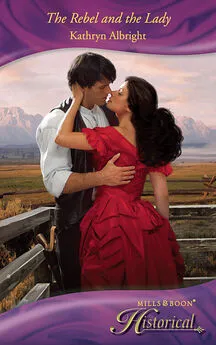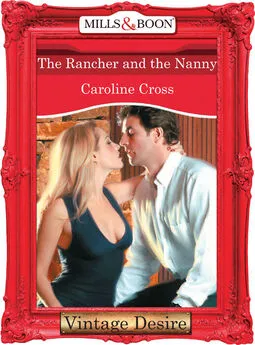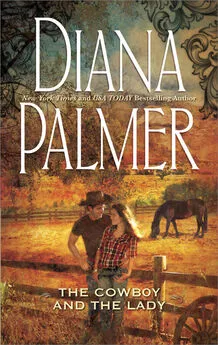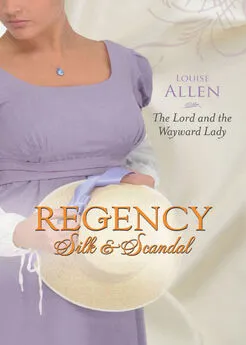John Creasey - The Toff and The Lady
- Название:The Toff and The Lady
- Автор:
- Жанр:
- Издательство:неизвестно
- Год:неизвестен
- ISBN:нет данных
- Рейтинг:
- Избранное:Добавить в избранное
-
Отзывы:
-
Ваша оценка:
John Creasey - The Toff and The Lady краткое содержание
The Toff and The Lady - читать онлайн бесплатно полную версию (весь текст целиком)
Интервал:
Закладка:
Then he saw the front page of The Record.
A picture caught his eye, and slowly he raised the newspaper, for he saw that the picture was a likeness of the woman whose photograph lay on the bed. It was not a reproduction from the photograph; the angle was slightly different and the woman was not wearing her pearls, but undoubtedly it was the same woman. The difference between the pictures seemed more marked the longer he studied the newspaper. Gone were the curves at the corners of the lips and the suggestion of veiled mockery in the narrowed eyes. The photograph showed something of the character of the woman, the picture in The Record had a blankness of expression which disturbed him. She looked lost and forlorn.
In heavy type above the picture were the words: DO YOU KNOW THIS WOMAN? Beneath it, in italics: To read the amazing story turn to page 3, column 1.
Slowly, Rollison turned to page 3.
CHAPTER TWO
THE STORY OF THE LADY
“HALLO, Rolly,” said Superintendent Grice, “I thought you had gone north after some bad men.” He shook hands with Rollison and pulled up an armchair covered in faded green cloth, then offered cigarettes. “Couldn’t you find them?”
“They were non-existent,” Rollison said, sinking into the chair. “Thanks. You look very spruce this morning. Everyone seems to be celebrating something.”
Grice was, indeed, immaculately dressed. In his buttonhole was a white carnation, he wore a wing collar and a bow tie, and in place of his usual lounge suit which always looked in need of pressing, he had on morning dress. Scotland Yard had never seen him so well turned out. Nothing, however, could alter his rather severe, even aquiline features across which the skin was stretched tightly, showing the little parallel ridges at the bridge of his nose. His skin seemed to glow; it was a golden brown, more often seen in Italians and Spaniards than in Englishmen. Brown hair and brown eyes with that delicate skin made him look almost un-English.
“One of the Inspectors is getting married at noon,” he said, “hence the fal-de-rols.”
“Do I know him?” asked Rollison.
“I doubt it. Charters, who’s just been promoted—he was in the Records Office.”
“I seem to have heard of him vaguely,” said Rollison. “I’ve been out of touch for too long. Occasional descents on to the sanctum sanctorum aren’t enough.” He smiled. “I’ll have to put it right. You’ll soon find me at your elbow wherever you go, always ready with a word of advice. How does it appeal?”
“It sounds terrible,” said Grice.
Between these two men there was a friendship the stronger because when they had first met it had been in an atmosphere of mutual suspicion, not far removed on Grice’s side from hostility. That was in the days when Rollison, so widely known as The Toff, had taken on himself the investigation of crimes, with scant regard for police susceptibilities. The Toff had matured since then and the police even consulted him occasionally, although some officers at Scotland Yard could not forgive his early wilfulness. Grice knew his worth, however, and nothing seriously ruffled the calm of their association.
“As it’s now eleven,” said Grice, “I haven’t a lot of time this morning. Is there something on your mind?”
“Much,” said Rollison. He took from his pocket a folded Daily Record, and pushed it across the desk. “Who’s the lady?” he demanded.
Grice shot him a quick, searching glance.
“Can you tell me anything about her?”
“Nothing.”
“Then why are you interested?”
“Take one more look at her,” said Rollison, “and guess.”
Grice ignored the suggestion, sat back in his chair, and pressed the tips of his fingers together.
“Now look here, Rolly, you aren’t interested in her because of that photograph. It’s a bad one, in any case—and you aren’t the man to be intrigued by a loss of memory case unless you’ve a special reason.”
“Oh, I’ve a reason,” said Rollison, “but before we go into that, tell me more. All I know of her I read in The Record. The story of the Bal Masque , where she turned up, is highly decorative.”
“It’s true enough,” said Grice.
Rollison raised his eyebrows.
“The story isn’t in any of the other papers.”
“It didn’t happen until the ball was nearly over and most of the Press had gone home,” said Grice. “ The Record still runs a gossip column, and their society newshound was there, when . . .”
At half-past two, when even the gaiety of a function sponsored by Mrs. Barrington-Ley was beginning to lose its vitality, the lady of the photograph had arrived at Barrington House. There, Mrs. Barrington-Ley had staged a Bal Masque on behalf of the Action Committee for Famine Relief, a generous and timely gesture. The Bal Masque had been one of the social events of London, and even the fact that it was held in September had not affected its success. Over five hundred people had been present, and the proceeds would probably reach five thousand pounds, for there had been auctions of jewellery and mock-auctions and all manner of ingenious ruses for raising money. Everything had gone smoothly, as was to be expected of any event organized by Mrs. Barrington-Ley, until half-past two, when only a few dozen guests remained, and most of them were beginning to collect their wraps and coats. Then into the ballroom, gay with lights and decorations, warm and filled with the haze of tobacco smoke, had come “the lady”.
No one had seen her enter, but it had been a warm night with doors and windows wide open. Taxis and a few private cars were packed outside in a long line; there had been a constant stream of guests to and from the cars. Anyone could have entered Barrington House without difficulty.
“The lady” had walked from the main doors towards the centre of the room. Half-a-dozen little groups of people had been laughing and talking, and the buffet, in an ante-room, was fairly full. The lady was wearing a black satin gown and over it a mink coat. There was nothing remarkable in that, but her pallor had arrested the attention of the people who saw her—her pallor, said Grice and The Record , and her feverishly bright eyes. A dozen or more men and women had watched her, and silence had fallen upon the hall when, in the middle of the floor, the lady had turned and looked about her in every direction—and then collapsed in a dead faint.
She had not come round for over an hour, by which time the police had been called, because no one present knew her.
“And is that the lot?” asked Rollison.
“It’s plenty, isn’t it?” said Grice.
“Yes and no. Isn’t it early for you to make an appeal through the Press?”
Grice laughed. “We didn’t. The Record said that we would welcome any information about her, which is true enough, but we would have waited for a day or two before publicizing it. I don’t know that any harm’s done. She says that she doesn’t remember her name or where she came from, no one I’ve seen or we’ve interviewed knows her.”
“Where is she now?”
“At the Lawley Nursing Home,” replied Grice. “Mrs. Barrington-Ley decided to adopt her and shrank from the idea of her being kept at a police-station or in hospital, so she has a room at the nursing home. She speaks in a whisper and looks like a ghost. Two doctors have examined her, and found nothing wrong except a bruise on the back of the head.”
“Let me have it all,” said Rollison, when Grice paused.
“I’m trying to find the right word,” said Grice. “She’s tired out, suffering from physical and probably mental exhaustion. There’s nothing organically wrong with her, and a week’s rest will probably put her right. Mentally—well, it’s hard to say. If her memory’s gone completely, she might be unwell for a long time.”
“Why “if”?” asked Rollison.
“How can you be sure that a stranger has lost her memory?” asked Grice. “You can’t check. We’ve got to take her word for it, and it’s early for that.”
“The natural scepticism of a policeman,” said Rollison. “Do the doctors suggest that she might be putting on an act?”
“They’re non-committal.”
“The natural self-defence of a doctor!”
“Look here,” said Grice, “time’s getting on. What made you come along?”
“This,” answered Rollison.
He took the photograph from beneath his coat and handed it to Grice, telling him everything relevant to it as Grice studied the face. Grice looked up.
“Have you got the envelope?”
“Yes,” said Rollison, and took the envelope, folded, from his pocket. “I ran over it for prints, but I don’t think you’ll find more than Jolly’s, mine and the postman’s. That’s curious, isn’t it?”
“I suppose it is,” said Grice. “Whoever packed it wore gloves;
is that what you’re driving at?”
“Yes. No one handled the photograph with bare fingers, as far as I can find out—there are only my prints on ft. The mystery lady wasn’t in a state of mental or physical exhaustion when that photograph was taken, was she?”
“She looks very much all there,” said Grice. “What do you make of it?”
“Absolutely nothing,” said Rollison.
“I mean, of the photograph being addressed to The Toff?”
Rollison frowned. “It could be that someone who knows her knows also that she is in trouble and thinks I might be able to help. It suggests that whoever knows her and had the photograph has heard a fair amount about me, and perhaps even knows me.”
“I doubt it,” said Grice. “Otherwise it would have been addressed to you as Rollison.”
“Now, now!” said Rollison. “That wedding is getting on your mind. What could be better calculated to make me curious than a letter addressed to “The Toff”, not to Rollison? What could be better calculated to make me think that it’s a matter for investigation, not just of interest? Why was I chosen, and not the police? Because there is some hope that I might make private investigations—not everyone knows how friendly the Yard is towards me these days!”
Grice gave a somewhat sardonic smile.
“I thought you made nothing at all of this.”
“Inference and deduction doesn’t amount to knowledge,” retorted Rollison. “What do you make of it?”
“Nothing at all. I suppose you’ve come to me because you want to see her?”
“Any objections?”
“I couldn’t keep you away if I had,” said Grice, “but there’s no reason why you shouldn’t go. Of course, it may peter out. She isn’t a woman whom anyone would readily forget, and someone who knows her will probably turn up during the day. You’d like to know if they do, I suppose?”
“Very much,” said Rollison, getting up. “Now you’ve got to go and kiss the bride—don’t get tight at the reception. I may want to see you again this afternoon!”
He was in a thoughtful frame of mind when he left Scotland Yard, and also a litde rueful. In his wallet was an invitation from Mrs. Barrington-Ley to the Bal Masque. He could have been there when the lady had arrived—unless, of course, he had become bored and left early.
The rain had stopped, but the clouds were still lowering. He walked to Barrington House, which was in a small street off Park Lane, calling to mind all that he knew of Hilda Barrington-Ley. A charming, winsome creature, who made many people think that she was feather-brained but who had helped to raise great sums of money for charities. She had hosts of friends and her husband, the banker, was extremely rich. That went without saying of the owner of Barrington House.
Читать дальшеИнтервал:
Закладка:










